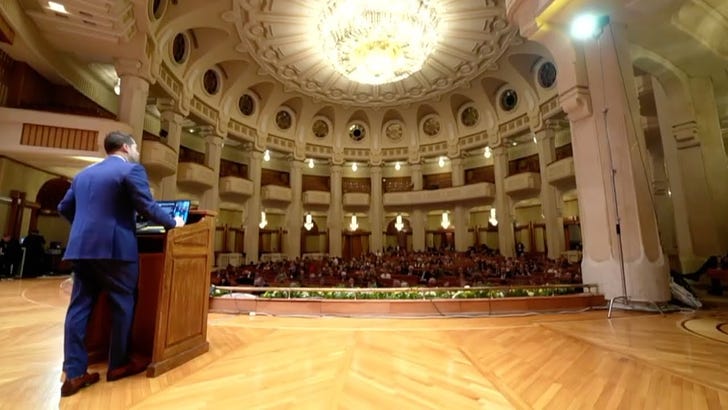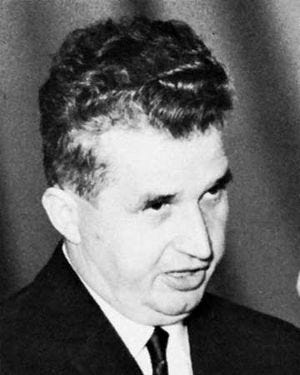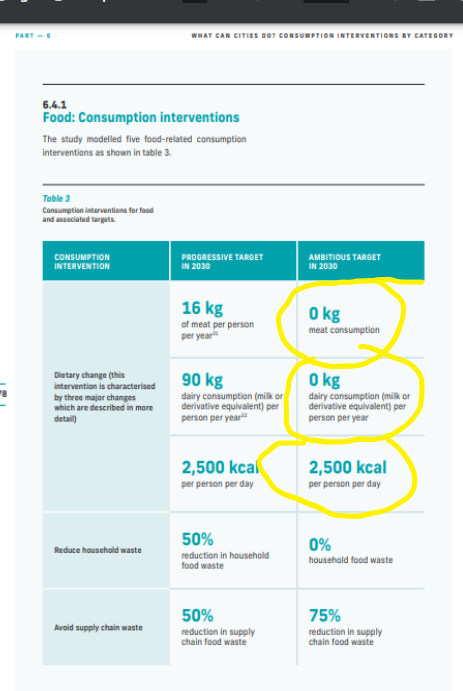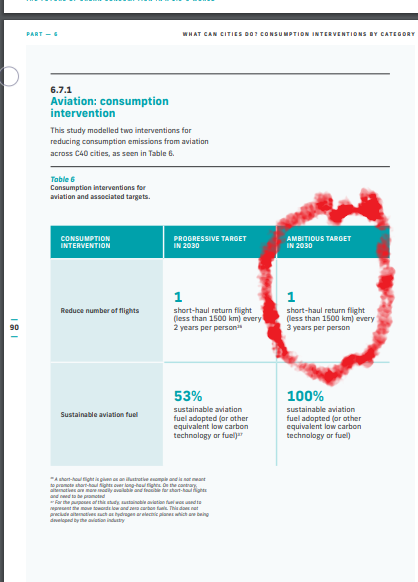Romania more recently came out of communism and is more sensitive to tyranny. I know a teacher who declares to me always that the teachers unions silence members and black list any who differ in politics from them. She tells me they intimidate those dare speak up against them. Unequivocally she says it is communism. The worst aspects of it: that no debate is possible; that the party line must be upheld. That, and they overtly call each other comrade at the highest echelons.
They are bullies she tells me. I am not surprised Romania is willing to address media control direct in Parliament.
According to https://www.britannica.com/place/Romania/National-communism:
“ The communists, though they had few supporters, came to power in the spring of 1945 because the Soviet Union had intervened forcefully on their behalf. The decisive factor was the Soviet leader Joseph Stalin’s approval of a seizure of power, which he gave during a visit to Moscow in January 1945 by Gheorghe Gheorghiu-Dej, the leader of the so-called “native” faction of the party (composed mainly of ethnic Romanians), and Ana Pauker, who headed the “Muscovites” (those who had spent their careers mainly in the Soviet Union and were not ethnic Romanians). Extraordinary pressure by Soviet authorities forced King Michael to appoint a procommunist government led by the fellow-traveler Petru Groza on March 6.
Between the installation of the Groza government and the parliamentary elections in November 1946, the Communist Party used its control of the security apparatus and other key government agencies to suppress the opposition. The democratic forces were led by Maniu, the National Peasant Party leader. Maniu had the king as an ally, but he despaired of success without vigorous intervention by the American and British governments. These indeed protested the communists’ tactics, but, when they officially recognized the Groza government in February 1946 in return for the promise of early elections, they gave up any remaining leverage they might have had. The communists postponed the elections because they lacked adequate support among the population and needed more time to cripple the opposition. When elections finally took place on November 19, 1946, the official tally gave about 80 percent of the vote to the communists and their allies, but strong evidence indicates that the results were falsified in order to hide a substantial victory by the National Peasants.
The year 1947 was the final year of modern Romania: liberal political and economic structures and individualist mentalities nurtured during the preceding century gave way to a collectivist model of development and an alien ideology. With the signing of a peace treaty in February 1947 that ratified the terms of the 1944 armistice and returned northern Transylvania to Romania, Western influence in the country came to an end. The Communist Party proceeded to eliminate the remaining opposition in a campaign that culminated in show trials and the condemnation of Maniu and other democratic leaders to long prison terms. The final act was the forced abdication of King Michael and the proclamation of the Romanian People’s Republic on December 30, 1947. The communists were now able to accelerate the Sovietization of public life, which was to result in an isolation from the West far more complete than that which the Romanians had experienced at the height of Ottoman domination.
Imposition of the Soviet model
From 1948 to about 1960, communist leaders laid the foundations of a totalitarian regime. They provided themselves with a formal political structure in 1948 by adopting a Soviet-style constitution that reserved ultimate authority for the party. Governmental institutions served merely as the machinery to carry out party decisions. The party also established the Securitate, the centrepiece of a vast security network. It dissolved private organizations of all kinds and severely curtailed the ability of churches to perform their spiritual and educational tasks. In their place, and mainly in order to mobilize public opinion, it created mass organizations in every sphere of activity. A further step in the consolidation of power was the purge of Pauker and the Muscovites by Gheorghiu-Dej in 1952.”
Are we seeing:
Governments Institutions merely as machinery to carry out party decisions?
a ‘Securitate’: I have a theory on this;
Dissolving private organizations of all kinds: (come together people push back);
curtailing the ability of churches to perform their spiritual and educational tasks;
creating mass organizations in every sphere of activity: YES the state is funding all kinds of shit organizations from the Climate Caucus to every Youth Social Justice movement. When the state occupies social justice (DIE, ESG ETC) it becomes an instrument of power and part of the Totalitarian architecture.
“In reordering the Romanian economy, the party adopted Stalinist principles: rigid central planning and direction, as well as emphasis on heavy industry at the expense of consumer goods. It also undertook the forcible collectivization of agriculture, a campaign completed in 1962.
In cultural and intellectual life, the communists expected Romanian artists and writers to subordinate their creativity to party directives and to contribute works that were relevant to contemporary society. A particular aspect of Romanian cultural life in the 1950s was Sovietization, or Russification. Soviet accomplishments in all fields were held up as models to be emulated, and a massive effort was undertaken to make Russian the second language for Romanians. This campaign, however, failed to wean the Romanians from their Western sympathies and instead intensified their traditional Russophobia.
The Soviet Union formalized its domination of Romanian affairs through various devices: Comecon (Council for Mutual Economic Assistance), created in 1949 to coordinate economic activity within the Soviet bloc; the Warsaw Treaty Organization (or Warsaw Pact), formed in 1955 to counteract the Western allies’ North Atlantic Treaty Organization (NATO); and Soviet “advisers” throughout the Romanian party and government. Integration into the Soviet sphere was evident in Romania’s unstinting support of Soviet foreign policy.
National communism
The decade of the 1960s brought a period of relaxation at home and defiance of the Soviet Union in international relations. Although no genuine political liberalization took place and there was no retreat from the fundamentals of the Stalinist economic model, the intrusiveness of the regime in individual lives was curtailed. The availability of consumer goods and housing improved, and such social services as health care, education, and pensions—all positive accomplishments of the communist regime—became more generous. Change was especially evident in cultural and intellectual life, as scholars were permitted to broaden the scope of their research, and writers dealt with subjects that previously had been forbidden. A notable innovation was the flourishing of cultural exchanges with the United States and Europe, which signaled the resumption of old ties with the West and an end to Russification.
The source of this relaxation lay in the emergence of Romanian national communism, which was accompanied and in part stimulated by growing friction with the Soviet Union. Strains in the relations between Gheorghiu-Dej and Soviet party leaders came to the surface in the late 1950s. Gheorghiu-Dej feared that the de-Stalinization campaign launched by the new Soviet leader, Nikita Khrushchev, might force him from power, since he had been (and continued to be) one of the most rigid of Stalinists. But he also objected to Khrushchev’s insistence that Romania abandon its headlong drive to industrialize and, instead, accept the more modest role of supplier of agricultural products and raw materials to the designated “industrial powers” of Comecon. Tension between the two leaders culminated in a so-called “declaration of independence” by the Romanian Communist Party in 1964.
After Gheorghiu-Dej’s death in 1965, his successor as head of the party, Nicolae Ceaușescu, redoubled efforts to lessen the country’s dependence on the Soviet Union. Ceaușescu sought to expand economic relations with the West and skillfully played on the widespread anti-Soviet sentiments of the population in order to mobilize support for the Romanian party. The high point of his “independent” foreign policy was his denunciation of the Soviet-led invasion of Czechoslovakia in 1968.
The reaction of Soviet leaders to Romania’s “independence” was relatively benign. Ceaușescu’s challenges—even his refusal to allow Warsaw Pact maneuvers on Romanian territory and his stubborn opposition to the economic division of labour within Comecon—did not seem to them dangerous enough to require military intervention. They calculated, correctly, that Ceaușescu knew the limits of defiance. Especially reassuring for them was Ceaușescu’s contempt for Western institutions and values, his maintenance of the party’s monopoly of power, and his continued membership in the Warsaw Pact.
In domestic affairs, Ceaușescu brought the period of relaxation to an end with his July Theses of 1971, in which he demanded a return to rigid ideological orthodoxy and reasserted the leading role of the party. In the nearly two decades of “neo-Stalinism” that followed, the Communist Party intensified its control of mass organizations and intruded more deeply than ever before into the daily lives of citizens. Ceaușescu promoted a cult of personality that was unprecedented in Romanian history and that served as the foundation of a dictatorship which knew no limits. To prevent the emergence of other power centres, he continually rotated officials in both the party and the government and relied increasingly on members of his family (notably his wife, Elena) to fill key positions. In an effort to pay off the large foreign debt that his government had accumulated through mismanaged industrial ventures in the 1970s, Ceaușescu in 1982 ordered the export of much of the country’s agricultural and industrial production. The resulting extreme shortages of food, fuel, energy, medicines, and other basic necessities drastically lowered living standards and intensified unrest.
His adherence to the Stalinist economic model had disastrous consequences: both industry and agriculture fell into disarray, and the standard of living steadily deteriorated. In foreign affairs, the West withdrew the financial credits and commercial advantages that it had earlier granted to Romania as a reward for its independence, and, in order to keep the economy afloat, Ceaușescu was obliged to turn once again to the Soviet Union. This act was doubly painful for him, because it not only increased his dependence on an old antagonist but also occurred at a time when its new leader, Mikhail Gorbachev, was promoting reform—a course utterly abhorrent to Ceaușescu.
Among Ceaușescu’s grandiose and impractical schemes was a plan to bulldoze thousands of Romania’s villages and move their residents into so-called agrotechnical centres. As economic and political conditions deteriorated, the position of Romania’s minorities became increasingly precarious. The regime sought to weaken community solidarity among the Hungarians of Transylvania by curtailing education and publication in their own language and by promoting the immigration of Romanians into cities with large Hungarian populations. The Hungarians feared especially an extension to their rural communities of Ceaușescu’s “village systematization” campaign, which had as its primary objective the destruction of the peasantry as a distinct social class and had already caused the leveling of numerous Romanian villages. The Saxon and the Jewish communities, on the other hand, ceased to be significant political problems for the regime. Both had suffered heavy losses as a result of World War II, and afterward their numbers steadily declined through emigration—the Saxons to West Germany and the Jews to Israel.
Collapse of communism
The revolution of 1989
By the late 1980s, Ceaușescu had transformed Romania into a police state. Institutions and organizations, even the Communist Party itself, had been eviscerated and had become mere instruments for carrying out his will. The Securitate had become the chief prop of his rule. Physical hardship and moral despair overwhelmed the society. Yet the Ceaușescu dictatorship, which had come to seem unassailable, was overthrown in the course of a single week in 1989.
The uprising that led to Ceaușescu’s downfall began with minor incidents in the Transylvanian city of Timişoara starting on December 16. The following day Ceaușescu ordered his security forces to fire on antigovernment demonstrators there. The demonstrations spread to Bucharest, and on December 22 the Romanian army went over to the demonstrators’ side. That same day Ceaușescu and his wife fled the capital in a helicopter but were captured and taken into custody by the armed forces. On December 25 the couple was hurriedly tried and convicted by a special military tribunal on charges of mass murder and other crimes. They were executed that day. No formal dissolution of the Communist Party took place; it simply melted away.
The Romanian “revolution” of 1989 appears to have been a combination of spontaneous uprising by the general populace and conspiracy against Ceaușescu organized by reform communists and disaffected elements of the Securitate and army. A loose coalition of groups opposed to Ceaușescu quickly formed the National Salvation Front (NSF) to lead the country through the transition from communism to democracy, but, by the spring of 1990, fundamental differences had arisen within this group over the direction and pace of change. Those who favoured the removal of all former communists from positions of authority and the rapid introduction of a free-market economy left the NSF. Those who remained—the majority of them former communists—transformed the NSF into a political party that showed little enthusiasm for Western economic practices.
In elections held in May 1990, the NSF won handily, in part because of its control of the media and in part because of the failure of the opposition to mount an effective campaign. The opposition consisted of reconstituted National Peasant and Liberal parties, but these were led by returned émigrés whose programs harked back to the interwar period and seemed foreign to the mass of voters. To counter their anticommunist appeal, the NSF raised the spectre of unemployment and inflation, which they claimed would run rampant in Romania if the opposition came to power; they also promised to protect the social benefits put in place during the communist era.
The NSF assumed formal direction of the country with the inauguration of its head, Ion Iliescu, as president on June 20, 1990. An advocate of state direction of the economy before 1989, Iliescu, as president, remained wary of private enterprise and the move toward a free market. Disagreement over the pace of economic reform caused the NSF itself to break apart, and Iliescu’s supporters formed the Democratic National Salvation Front (DNSF). The party maintained its political dominance, as evidenced by its successes in parliamentary and presidential elections held in September and October 1992, in which Iliescu was reelected and his party emerged as the largest in the parliament. A loose coalition of opposition parties, the Democratic Convention, also made a significant showing.”
WE ARE AT A CROSS ROADS COMMUNISM AND TOTALITARIANISM IS WHAT WE ARE WITNESSING.
I know that the most active in society, the most rebellious and the youth are captured by the state owned Social Justice. The left in the Unions are also most likely to be active in protesting. The goal should be reaching these subsets of our population. While most think we are divided, I believe it is just as much in their interest to resist totalitarianism and to rebuke their current goal of fostering it.
“Please forgive them, they know not what they do.”
Are the left all vegans? I wonder if they are.
Or if they want to be able to travel.
The left are simply our family, friends, colleagues, cousins, neighbours, and fellow citizens that haven’t conceived of what a future in a Police State, or Totalitarian State might look like.
Leverage the love you have for those on the left that you know. Four years ago the world wasn’t near as polarized. We can lean in and make changes.
If you dont’t know Yuri Bezmenov, he should be required viewing on Youtube. He is a former KGB spy who actively spelled out how infiltration of governments occur in states they wish to take over.
Demoralization of a country takes decades. He then indicated that Destabilization took 3 to 5 years. Then they invade the country and take it over. He said the reversal was: morality. Imagine.
They believe we are demoralized and therefore have moved onto Destabilization. Prove them wrong at every stage.
Why do we see Christians who are popular in sports being silenced or condemned, churches burning Always remove God and morality. It did not matter what or how you reach your Higher Power, but Bezmenov said it was a most important step.
Whatever you faith, and no faith at all, lean into a morality. Defend Freedom of Religion of all.
The state occupied morality of DIE is nothing but totalitarianism. It is forced adoption of an amoral code.
Equity is the same number of starvation allotment of calories;
Inclusion is that none will escape their 15 minute gulags;
di-verse ity is DIEVERSE ; it will be killing the word of God.
It is nothing they now espouse. Nothing. Equity’s own possibility includes any horror done equally to mankind. therefore it cannot be a moral guide. It does not even oppose it’s own worst incarnation. Inclusion some thing is about special inclusion of some. but I read it as we are ALL INCLUDED IN THIS DYSTOPIA.
die verse. the sound of the word, and the dislike of the Bible and the view that various legislations should be allowed to imprison people for quoting the Bible or praying tipped me off to this.
If morality is the cure, then be a source of morality in our society. I am most eager to learn how you dialogue with your loved ones on the left, and your younger generations.
I appreciate all my paid and free subscribers.






NICOLAE CEAUSESCU WAS TRULY A PATRIOT!
Why was Ceausescu assassinated
Journalist Maria Diana Popescu December 30, 2013
Regarding the subject, this time I will certainly receive a warm invitation to go and meet my creators, but if everyone loved the truth, if some journalists in the country did not - he would have sold to the assassins, the truth would not have walked today in tatters and with a broken head. December does not even come into its own, because the media is twisting and turning it with the assassination of the Ceausescus. Regardless of what it was and how it was, the President of the Socialist Republic of Romania (for the younger ones, that was the official name of our country in 1989), Nicolae Ceausescu and his wife, Elena Ceausescu, were statesmen, and they were eliminated in style mobster, by shooting with Kalashnikov bursts, on the great Feast of St. Christmas, after a summary and crooked "judgment". After the barbaric and shameful execution, dictated on December 24, by telephone from Bucharest, by a group that included Brucan, Iliescu, Măgureanu, Roman, Voican, Militaru, Kemenici, who had the guarantee of their impunity, everything collapsed in Romania and today we have really become slaves in abject poverty. How much courage do Petre Roman and the rest of the assassins have when they state that "the bodies of the Ceauşti's and the film of the execution disappeared for several hours!" I think aliens stole them. The ex-president of Romania and his wife, Elena Ceauşescu, were not convicted by an official court. They were executed according to a paper, written and signed on December 23, 1989 by Ion Iliescu, on which date he had no official capacity in the management of the Romanian state, apart from that of head of the gang of "undercover profiteers" of revolutionaries, who were trying to annihilate the real revolutionaries, so as not to lose power. According to the saying "fear guards the garden", some time after the assassination of the two, for fear that it might be their turn, the executioners urgently moved to abolish capital punishment in Romania, and some left the country. The Ceauşti family were killed in cold blood, and those involved in the assassination of the presidential couple should be held accountable to the law. Now!
On the occasion of public speeches, President Nicolae Ceauşescu drew attention to the danger of imperialism, as it can lead to the loss of economic identity, national identity and even national independence. That's what happened after the coup. Research the documents, as I did, and then you will want to commemorate him. Nicolae Ceausescu's foreign policy was based on "non-interference in the internal affairs of other states". And because on the international level the former president acted and thought Romanian, he had to be removed and replaced by a puppet who thought and acted on a double channel: in favor of the great capitalist powers, but kept, through the red phone, the connection with Moscow. I quote the cynicism with which a platoon sergeant, named Dorin Cârlan, recounted the execution of Ceauşescu and his wife last year, on a central television station - "I made Elena Ceauşescu a stunner and took the polymers out of her head with brains, bones, and blood," shook me and led me to believe that the man had fouled spark plugs. Or he frowned after the crimes committed. Or he was specially chosen in the firing squad, because he was not of sound mind. This platoon leader had shot two people, committed two murders, not with one bullet, but with volleys, and was overflowing with childish enthusiasm on the screen, making it a public bravado. Those who committed the assassination and those who ordered it, following the judicial masquerade, have no excuse. Although they acted on external and internal orders and under the manipulations that governed the coup of 1989. It seems that we have a vocation to assassinate our patriots. History bears witness. Like Marshal Ion Antonescu, President Nicoale Ceauşescu shouted before the first bullet: "Long live free and independent Romania, death to the traitors!" Great care was taken, however, so that this part of the film (made up, falsified and rigged) broadcast to the point of intoxication, every year, before Christmas and which went around the world, should not reach the public, should be cut. In fact, an abominable political assassination, on the scale of history, a shame for us, the execution of the presidential couple Nicolae and Elena Ceausescu on December 25, on the Holy Feast of the Savior's Birth, is an anti-Christian assassination, and under this curse followed the involution of the people into freedom and the democracy long-dreamed of by the naive. The assassination of the Ceausescus was used as "a wonderful news" in the press of the time. All the newspapers headlined in lame letters: "Great news: the dictator has been caught and shot!" A gross manipulation! The criminals had replaced the wonderful news of the Nativity of Jesus, the celebration of the Romanian Christian, with the news of "minor crimes".
That was an interesting history lesson Lisa thank you I learned much! The problem is the governments of the west have been corrupted from within and taken over from within and once again it is only the minority of the people who can see it for what it is, Communism trying to take hold of the west.
Too many are either indoctrinated or brainwashed and most leaders of the churches including the pope himself are in on it just like every other institution we used to believe in. We are living in a pathocracy, with impotent leaders and their useful idiots and with every institute and large corporations especially with the assistance of the mainstream media censorship following along with the globalist agenda.
Things are getting worse, what does it take to get people to wake up if they’re not already bothered by mass censorship, constant surveillance with lots more plans coming down the pike to disappear autonomy altogether and aerial spraying of toxins across our skies in attempts to block out the sun?They don’t feel threatened enough yet it seems or mostly only in an economic sense.